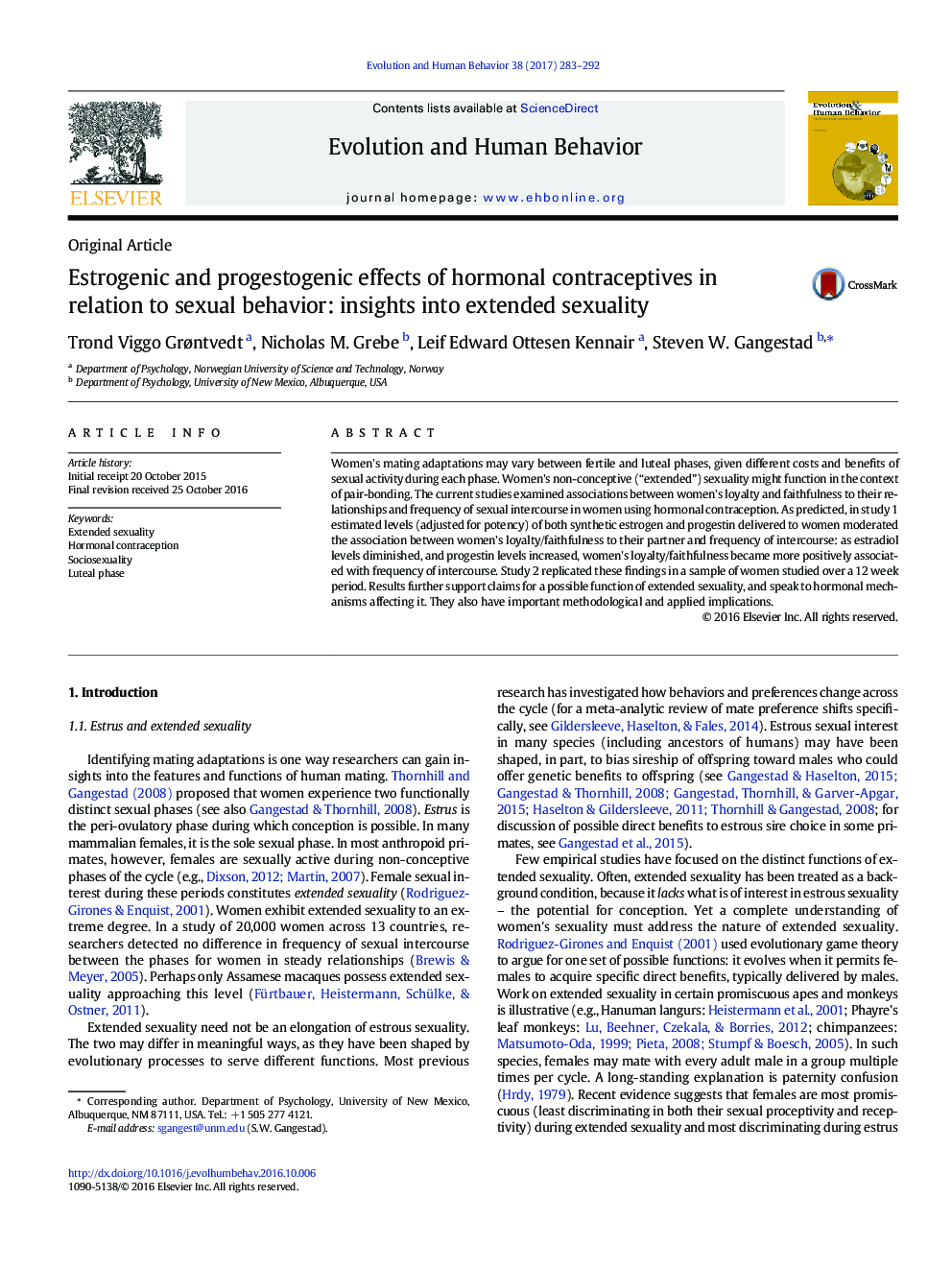| Article ID | Journal | Published Year | Pages | File Type |
|---|---|---|---|---|
| 5044769 | Evolution and Human Behavior | 2017 | 10 Pages |
Women's mating adaptations may vary between fertile and luteal phases, given different costs and benefits of sexual activity during each phase. Women's non-conceptive (“extended”) sexuality might function in the context of pair-bonding. The current studies examined associations between women's loyalty and faithfulness to their relationships and frequency of sexual intercourse in women using hormonal contraception. As predicted, in study 1 estimated levels (adjusted for potency) of both synthetic estrogen and progestin delivered to women moderated the association between women's loyalty/faithfulness to their partner and frequency of intercourse: as estradiol levels diminished, and progestin levels increased, women's loyalty/faithfulness became more positively associated with frequency of intercourse. Study 2 replicated these findings in a sample of women studied over a 12 week period. Results further support claims for a possible function of extended sexuality, and speak to hormonal mechanisms affecting it. They also have important methodological and applied implications.
